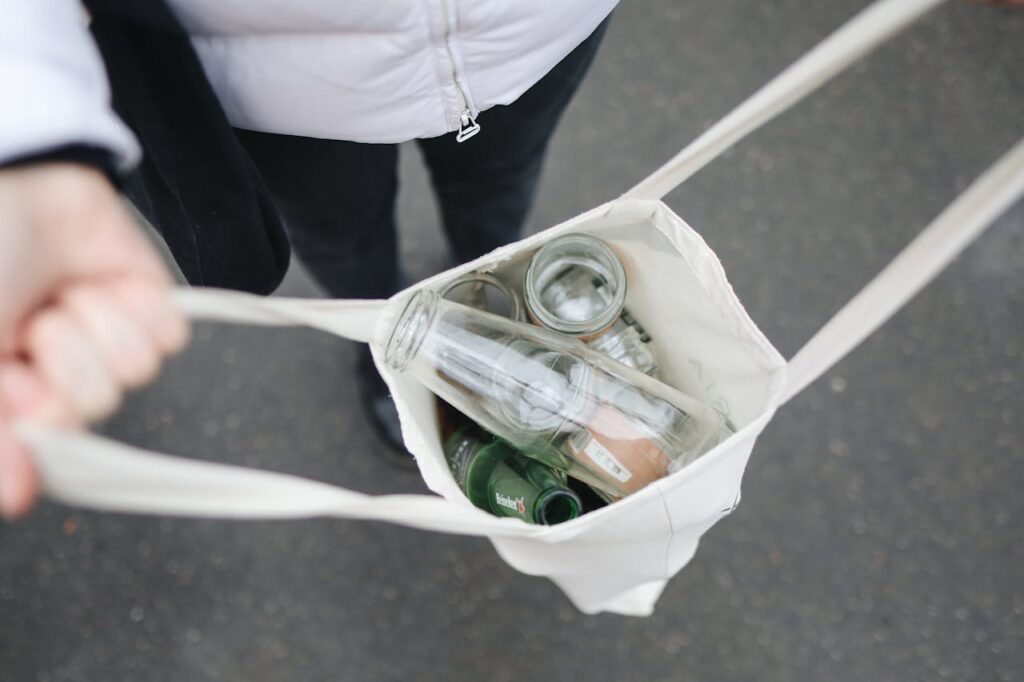
A zero-waste goodbye party ensures a fun farewell without adding to the problem. This approach eliminates disposable items, repurposes decorations, and reduces food waste. Planning an eco-friendly relocation, especially when it comes to long distance moving, such as from Memphis to Oregon, can be difficult. Discarded furniture, unused food, and single-use packing materials often end up in landfills. Hosting a zero-waste party keeps unnecessary trash out of landfills and sets a sustainable example for guests. Simple adjustments can make a big difference, and planning ahead allows for a smooth, waste-free celebration.
Plan a Waste-Free Guest Experience
An eco-conscious event starts with the invitations. For starters, printed materials create unnecessary waste, so opt for digital options. Send e-vites via email or text instead of using traditional paper invites. Encourage guests to reply online to avoid printing RSVP cards. Secondly, transportation can also contribute to waste. Ask guests to carpool or use public transit. If the party is nearby, suggest walking or biking. This reduces emissions and avoids excess vehicles taking up space.
Next, serving food and drinks without disposable materials is another key step. Provide guests with reusable plates, cups, and cutlery. If that’s not possible, ask attendees to bring their own. This eliminates single-use plastics and prevents waste from piling up. A dish-sharing system allows everyone to participate in reducing trash. Clear communication is also essential. Let guests know in advance that this event focuses on reducing waste. Many will be happy to support the effort, especially when given simple ways to participate.
Importantly, packing up for a cross-country relocation while hosting an event can be stressful. Planning ahead and working with professionals makes it easier. Those moving, let’s say, from Memphis to Oregon should consider making a move with skilled assistance and hiring long-distance movers. This ensures that belongings are handled carefully, reducing the need for last-minute disposal of broken or lost items.

Craft a Sustainable Party Menu
Choosing the right food minimizes waste. Pre-packaged snacks and individually wrapped items create unnecessary trash. Instead, prepare homemade dishes using fresh ingredients. Shopping at local markets ensures that produce comes without plastic wrapping. First of all, consider plant-based options, as they generally have a lower environmental footprint. Meat production consumes more resources, so reducing or eliminating it can be a meaningful choice. If serving meat, source it from responsible suppliers who use minimal packaging.
Naturally, avoid disposable utensils by offering finger foods that don’t require plates or cutlery. Think of options like sandwiches, fresh fruit, and vegetable platters. Large serving bowls encourage guests to take what they need instead of leaving behind half-eaten portions. Leftovers should be planned for. Store extra food in reusable containers to distribute among guests. If there’s an abundance, donate to a local shelter or food bank. Some organizations accept prepared food, so check local policies in advance.
Drinks should also be considered. Provide beverages in glass pitchers rather than individual bottles or cans. Offer water, tea, or homemade juice instead of store-bought options that come in plastic packaging. Reusable straws and glasses ensure that nothing gets thrown away after just one use.
Decorate Without Waste
Single-use decorations generate unnecessary garbage. Balloons, plastic banners, and confetti contribute to waste without adding long-term value. Sustainable alternatives create a festive atmosphere without harming the environment. Use what’s already available. String lights, candles, and fresh flowers create a natural ambiance. Repurpose items like old fabric for table covers or bunting. Potted plants work well as centerpieces and can be gifted to guests after the event.
Homemade decorations likewise add a personal touch. Upcycle paper scraps to create banners or use cloth napkins instead of disposable ones. Chalkboards and wooden signs can replace printed posters, allowing them to be reused for future occasions. A waste-free approach also extends to seating arrangements. Renting chairs and tables eliminates the need to purchase new furniture. If additional seating is necessary, borrowing from neighbors or using existing household items prevents unnecessary purchases.

Make Your Zero-Waste Goodbye Party Truly Trash-Free
Zero-waste goodbye party events require careful waste management. Even with the best planning, some materials may need to be discarded. Clear sorting stations help guests dispose of waste correctly. Set up labeled bins for composting, recycling, and reusable items. Food scraps should go in compost bins, while glass and paper can be recycled. If serving drinks, provide a designated station for washing cups instead of throwing them away.
Repurposing leftover decorations ensures nothing goes to waste. Fabric banners can be used for future celebrations, while potted plants make excellent gifts. Borrowed furniture should be returned promptly and in good condition. Clothing or item swaps can be included as part of the event. Guests bring clothes or things they no longer need, and others can take what they want. This reduces waste and provides practical items for those who need them. Gift-giving should also align with waste-free principles. Instead of traditional party favors, offer guests sustainable alternatives. Seed packets, homemade candles, or baked goods in reusable containers make thoughtful parting gifts. A zero-waste goodbye party reduces unnecessary trash while allowing for a meaningful farewell.
Handle Leftovers and Cleanup Responsibly
The event may be over, but responsible cleanup ensures waste reduction continues. If not composted, leftover food should be handled properly. Extra portions can be frozen for later use or shared with attendees. In addition, sorting waste correctly prevents recyclable materials from being thrown out. Glass bottles, paper, and aluminum cans should be placed in the proper bins.
Reusable decorations should be stored for future use. Fabric, wood, and paper items can be repurposed for upcoming gatherings. Any borrowed or rented materials should be returned in their original condition. Above all, plastic garbage bags should be avoided for waste collection. Instead, use compostable bags or transport recyclables directly to the nearest drop-off location. Local waste facilities may offer additional recycling options for items like batteries or electronics.

Host a Zero-Waste Goodbye Party and Move Sustainably
A zero-waste goodbye party provides an eco-friendly way to celebrate before a big relocation, especially like one from Memphis to Oregon. By eliminating disposable items, repurposing materials, and managing waste correctly, it’s possible to enjoy a fun farewell without harming the environment. Carrying these sustainability practices into a new home ensures ongoing environmental responsibility. A conscious approach to packing, moving, and settling in continues the effort beyond the farewell event.
